Fuel valve to blame for power outage on Hibernia platform, causing spill
A low fuel supply to the equipment that keeps the electricity on is being blamed for causing the power outage that resulted in an estimated 2,200 litres of oil spilling into the Atlantic Ocean from the Hibernia platform over the weekend — just 48 hours after production at the site resumed following an earlier spill.
The latest spill happened when the power went out on the oil production platform, prompting the sprinkler system to activate. That triggered Hibernia's waste containment drain system — containing water and oil — to overflow from the platform and into the ocean.
On Monday afternoon, Scott Sandlin, president of the Hibernia Management and Development Company (HMDC), told CBC News that backup generators did come online, but he admitted he didn't know how long it took them to activate, which is supposed to happen immediately.
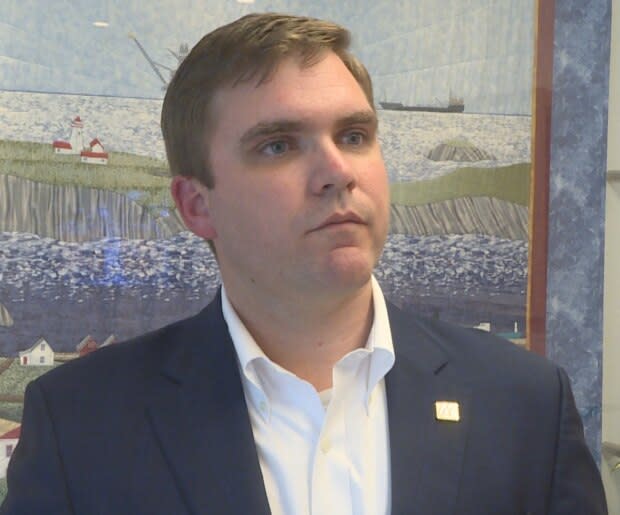
"That's part of our ongoing investigation," he said.
A spokesperson for HMDC told CBC later Monday that the fuel valve leading to the main power generator closed and therefore didn't supply fuel to the power generator.
Production is shut down as separate investigations by the company and the regulator, the Canada-Newfoundland and Labrador Offshore Petroleum Board (C-NLOPB), are underway.
All employees were reported safe, and aerial and satellite services were being used to "maximize recovery of the product," Sandlin said.
'Vital protection'
Natural Resources Minister Siobhan Coady said Monday that she's frustrated with this most recent oil spill.
"It's certainly not acceptable, I'm very concerned about this," Coady said, noting the safety of workers and protection of the environment are "paramount responsibilities" of the government and industry.
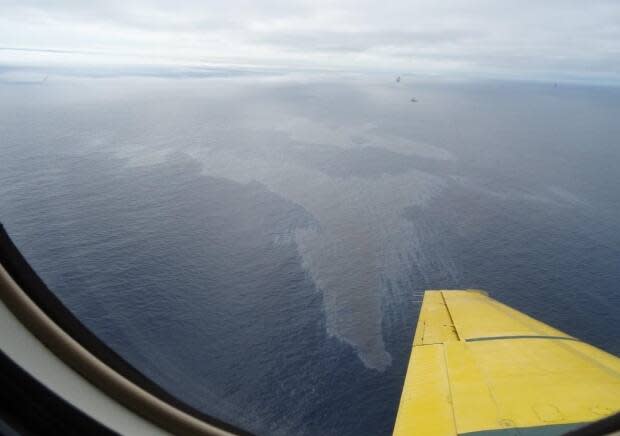
She said she has asked for a meeting between the C-NLOPB and the federal and provincial governments.
I go back to the fact that these instances should not occur. - Siobhan Coady
"To determine what more must be done to ensure this vital protection."
As an industry organization, the C-NLOPB has been criticized for not having appropriate power – or teeth – to regulate oil companies.
"There are some that believe it doesn't have the teeth, I think it does. But is there more that we need to do with the C-NLOPB? And we'll certainly do that, more," she said, including looking at having separate regulators for safety and environmental protection.
"Everything that can be done, and should be done, is being done in this clean up but it's, again, I go back to the fact that these instances should not occur," Coady said.
Finance Minister Tom Osborne also said the safety of workers and protection of the environment are the province's main priorities with the offshore oil industry when it comes to an oil spill.
"There is a financial impact as well, and it's about $2.5 million a day," the Hibernia platform is shut down, Osborne said — money the government will see when production resumes.
He said the province was 30 per cent reliant on oil for revenue 10 years ago, now it's roughly 11 per cent.
If it was properly run or properly regulated, you wouldn't have had three major oil spills in the last 10 months. - Ian Jones
Calling oil "a very, very bright spot in our future," Osborne said, "we don't want to be so reliant on oil that if something goes wrong we go flat. So we are focused on diversifying the economy."
The third oil spill within the last 10 months, Osborne said $80 million in revenue was deferred in the last fiscal year due to production being shut down after a massive oil spill — and it could be more than that again this year.
Lengthy investigations, same old problem
While the investigation into this latest spill will take time, biologists and environmentalists are concerned it's just another case highlighting the problem of a self-reporting oil industry.
"We're deeply concerned," said Scott Tessier, president of the C-NLOPB.
"Operators have two fundamental obligations ... and that's to keep offshore workers safe, and to protect the environment, and obviously these recent incidents are failures of at least one of those."
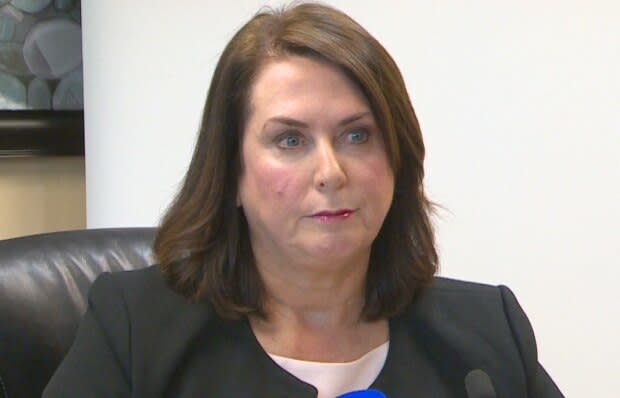
"I can tell you that Saturday night, I found out about it from media before I found out about it from Scott Sandlin, so obviously there are eyes and ears out there beyond the official channels of the company," Tessier said.
This latest spill comes just two days after production at the site resumed following last month's spill of 12,000 estimated litres of oil.
"The confounding question there, I suppose, is there is about 48 hours between the restart of production and this incident, so it's a bit hard to determine out of the gate whether or not the two are related," Tessier said.
However, HMDC's Sandlin said the company maintains there is no connection between the two spills.
"We believe what happened Saturday evening was the result of a facility challenge with the main power generations, not with the restart of production or the opening of the wells to restart that production."
'There's big problems'
Marine biologist Bill Montevecchi said there's a fundamental problem with how oil companies are held to account, adding that the C-NLOPB's responses were "reactionary" to Hibernia's reports.
"These are self-reports from corporations that are liable for the pollution in the ocean, so we've really got to turn this around and strengthen it," Montevecchi said.
"If you want to prevent something, you enforce it and you punish behaviour that's inappropriate."
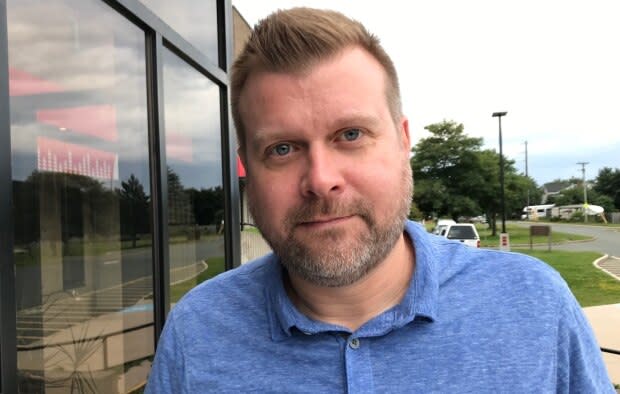
Montevecchi said he has "long-term concerns" about regulation and the role of the C-NLOPB in the province's offshore industry.
"It's just too weak.… I think there's big problems, and it's systemic."
Those concerns are echoed by fellow biologist and Memorial University professor Ian Jones, who specializes in seabird ecology, and calls the system "highly disturbing."
"This is the polluter reporting on its own pollution, so I would take these figures with an extreme grain of salt and skepticism," Jones said.
Jones said he has doubts about the industry and its safety regulations.
"If it was properly run or properly regulated, you wouldn't have had three major oil spills in the last 10 months. Good grief."
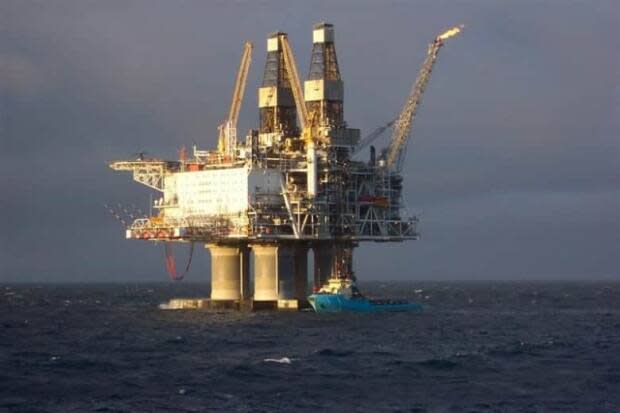
Tessier said there are options besides the self-reporting system of oil spills.
"I guess the alternative to the system we have is some sort of full-time presence on the platforms by government or the regulator," he said.
"I can tell you, in the industrial world, full-time independent observers are typically only employed in situations where there's flagrant or persistent disregard of the regulatory regime. Some would argue that's what we're seeing. It's a bit soon to jump to that conclusion."
Read more from CBC Newfoundland and Labrador


